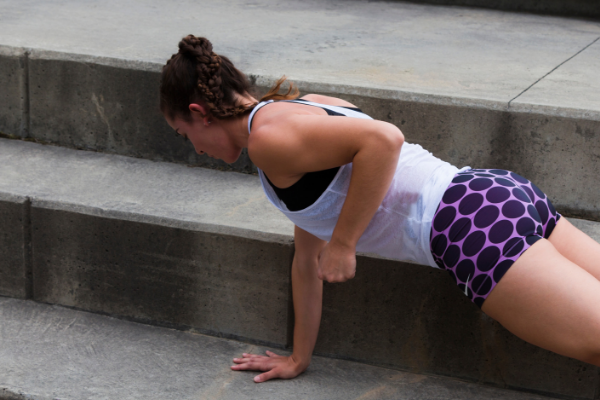At what point will things get easier?
“So, when do I get to the point where I feel fit?”
“Am I getting weaker…I felt like everything was so hard this week!”
“I feel like I am plateauing and haven’t increased my weight for ‘x’ exercise.”
Anyone ever thought some of the above statements in their head? Or maybe shared your frustrated feelings out loud? These are just a few remarks I have received over the last few weeks from my clients. As difficult as it can be to see my clients discouraged, I use this as the ideal opportunity to educate them, encourage them, and elevate them to where they truly want to be.
So what’s the short answer?
It depends. Every person is different and there is not one point in time when we are deemed fit or not. Unfortunately there isn’t one magic pill, exercise, or thing to do to make the training process easier. It takes time, commitment, and dedication to yourself. As trainers we can provide you with the tools, but it is ultimately up to you to take yourself to where you want to be.
Have you got more time to read today? I’ll share my top tips to overcome the hump in training and to better understand why we might be feeling this way.
Adaptation exists. Overtime what your body once deemed challenging will no longer be so tough because we adapt to the environment and stress we are putting on the body. That is why I always encourage clients to increase their weights once this happens to continue to challenge the body.
Accommodation also exists. Building on the concept of adaptation, all this means is that if you do not continue to increase your load over time, the gains you will receive from training will decrease. Your body begins to adjust to the load and demand. I see this happen a lot with female clients in group classes involving strength training. The tendency is to grab the weights you typically use for a specific exercise without acknowledging when it is time to increase. I usually tell clients to aim for a 7.5-9/10 in terms of intensity for exercises. If they aren’t reaching that, weight needs to increase. Or, if rep ranges are provided and you continue to hit the max number of reps in the range with ease, you can do more!
Progressive overloading. Overtime as clients gain confidence and practice with specific movement patterns, the demand needs to intensify overtime. This may mean through an increase of reps, sets, decreased rest time, increased weight, or movement variation. Gradually, we want to continue to see an increase in strength over time. As exciting as this can be, this is when clients question the increased difficulty level and their own fitness capabilities.
Workouts should never feel easy. This is when clients begin to feel down on themselves questioning their fitness and strength levels. The challenge in the beginning is understanding movements, which includes grooving the pattern for our brains and bodies. Once that happens, the challenge is increasing the demand as mentioned above. I remind clients that when workouts feel ‘easy’ we need to reevaluate the load and demands.
What are your goals? Checking in with yourself or your clients regularly to be clear on training goals is important. Is the goal to gain strength, maintenance, fat loss, stress reduction? The client’s main goals should be reflected in the program.
The biggest changes happen upfront. Ever heard people say “it is always hardest to lose that last 10 pounds”? Now while I don’t always like to make reference to weight loss, the same goes for any type of training. The training effects are usually more obvious and noticeable upfront. As we increase weight in strength training, the progressions might start to happen in smaller increments as we fine tune the movements. You may not be plateauing, but your body might have to hang out at a specific weight for longer than you did when you first began.
Hopefully, these small reminders can help you to refocus when feeling discouraged through training. And as I have mentioned in previous posts and conversations, is your choice of workout fun? Do you feel better afterwards? As much as we can talk about the physical changes above, fitness is so much more than that. Reaching your goals, feeling your best, and having fun can all happen at the same time.
Yours in self-discovery,
Rachel

